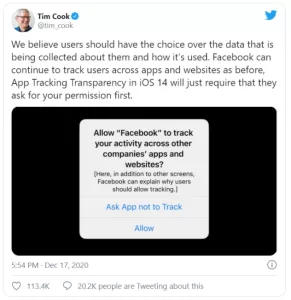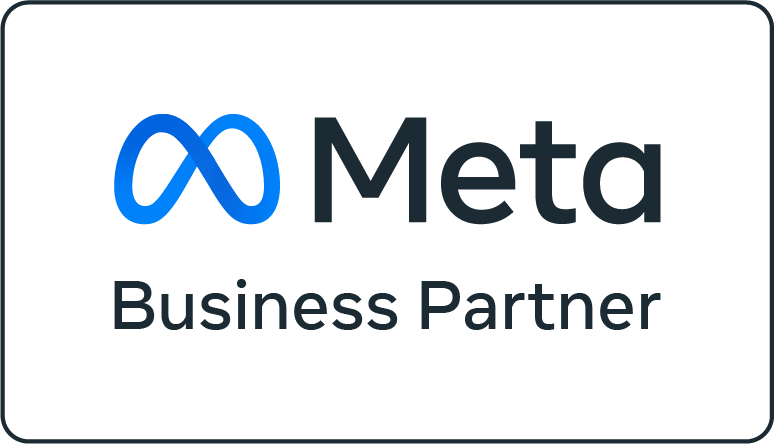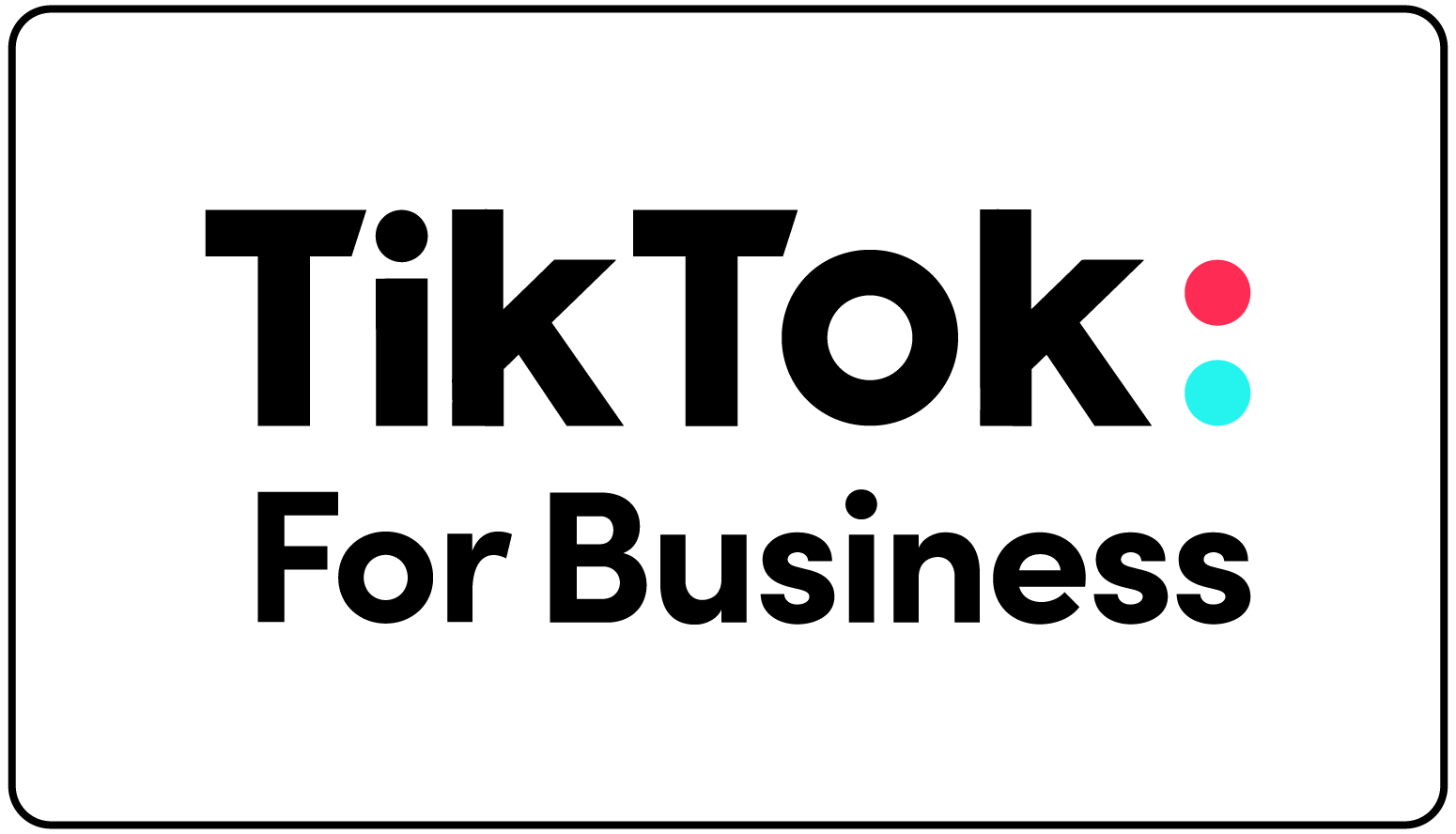The Apple vs. Facebook privacy battle is now starting to defcon 4. With the release of iOS 14, Apple will force all app developers to display a warning/opt-in prompt asking users if they would like to share data with the application. This will affect all apps with Facebook, Instagram, WhatsApp and Messenger included.
When Apple introduced its location tracking prompts in iOS 13, opt-in rates to share data with apps when they’re not in use dropped from close to 100% to often below 50%. With iOS 14, we would expect a similar, if not greater, loss in signals. Why is this so important? The Facebook Pixel and Facebook SDK are the primary tools that make the algorithm work so efficiently.
The Pixel is what tracks you when you are on a website shopping for a sweater, and then you quickly begin to see ads for various sweaters when you log in to the Facebook app. The SDK tracks you when you open a travel app and look at ski resorts. It tracks time of day, location, device and various other signals when you are most likely to purchase something or just scrolling through your feed. Without these signals, suddenly an advertiser’s return on ad spend decreases.

Is this the end of profitable Facebook advertising? Our hard answer is no. We ran profitable ads on the right hand rail of Facebook desktop in 2007 and are sure that we can continue to run profitable ads now. It helps that Facebook is actively rolling out new solutions, with the most important one being Conversions API.
Conversions API will essentially replace, or in other cases augment, the loss of signals from a website/app. It won’t be a perfect replacement (for instance it won’t be able to see add to cart actions), but it will offer the opportunity to optimize for deeper funnel events.
If you run a subscription model business, for example, it will allow you to optimize for a subscription that comes 30 days after a free trial. We recently ran a test for a client that optimized a campaign around email opens instead of website email sign-ups. This optimization has the potential to actually INCREASE campaign efficiency. We are actively implementing Conversions API for our clients, and if you would like to talk to Matchnode about doing this work for your business, you can contact us here.
What else needs to be done now? You need to verify your domain. Facebook outlines how to do this here.
There are several other changes coming that Facebook outlines very well in this post. The biggest changes will affect measurement.
Aggregated Event Measurement: Facebook will introduce Aggregated Event Measurement to support measurement of web events from iOS 14 users once Apple requires the ATT prompt.
Event Limits: You will be limited to the use of 8 conversion events per domain (i.e., 8 <pixel, event> or <custom conversion> per domain).
Ads Reporting: 28-day click-through, 28-day view-through, and 7-day view-through attribution windows will not be supported. Historical data for these windows will remain accessible via the Ads Insights API. Statistical modeling will be used for certain attribution windows and/or metrics to account for less data availability from iOS 14 users. In-product annotation will communicate when a metric is modeled.
However, after the technical and measurement pieces are in place, advertisers will also need to examine new ways to leverage Facebook effectively. Facebook Instant Experience, lead, and messenger ads will likely gain in adoption. Facebook and Instagram Checkout are sure to be important tools as well. We would expect in-app partners like Eventbrite to gain usage. If a conversion action happens IN Facebook, it can be reported and optimized.
Although the end of digital measurement as we know it may be near, Facebook’s Conversions API is a solution that will bypass browser tracking altogether. We recommend that advertisers start implementing Conversions API as soon as possible to stay ahead of the curve.




